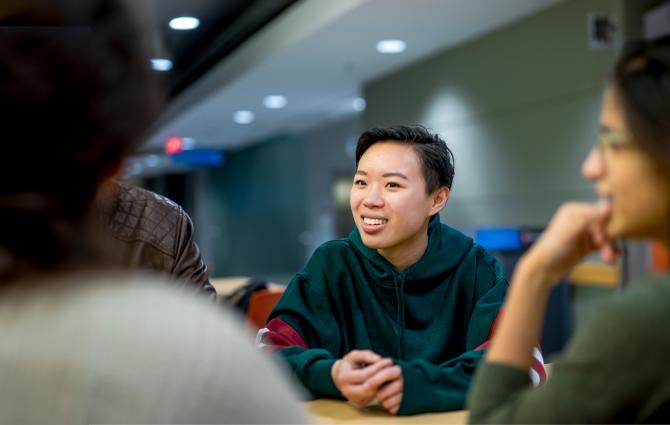I sat down with 3 undergrads to talk about their innovative solution to combat hunger in refugee camps, spurred by UBC’s World’s Challenge Challenge.
In the process, I learned not only about the pressing topic of food insecurity but also the value of embracing the unexpected...
There are different kinds of people who don’t have life figured out.
You have the people whose fear of the unknown is as paralyzing as the moment a waiter asks for your order before you’re ready. People whose instinctive response to the first syllables of “What are you going to do after you graduate?” consists of guttural noises, internal screaming, profuse sweating, or all of the above.
I fall into this category.
Then you have the people who don’t have life ‘figured out’ because, well, no one truly does, but they see that as liberating. People who view uncertainty as a blank canvas of potential. People with an ardent curiosity—and the unimaginable discipline to not hit snooze in the morning.
Allison, Rachel, and Ren are those people.
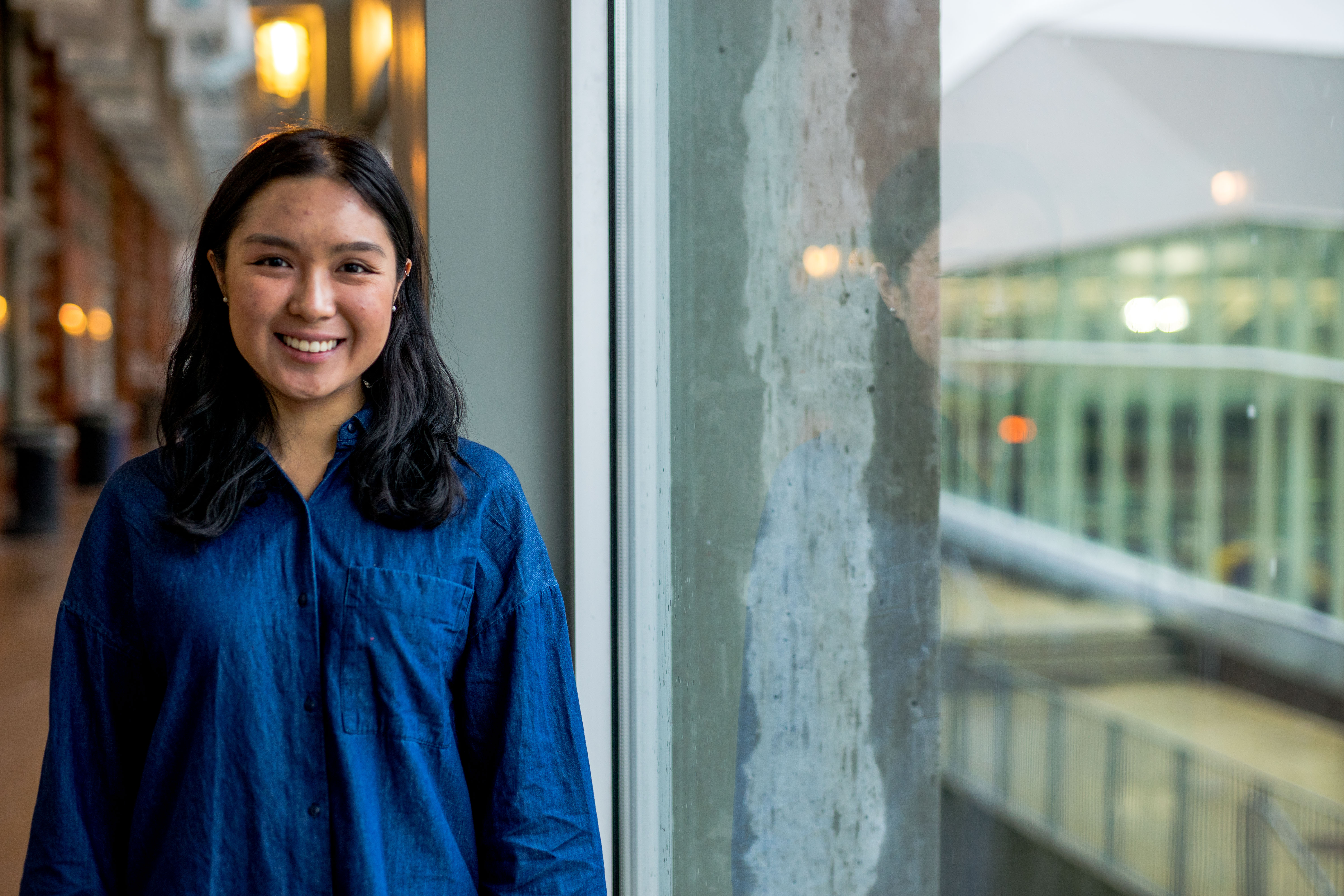
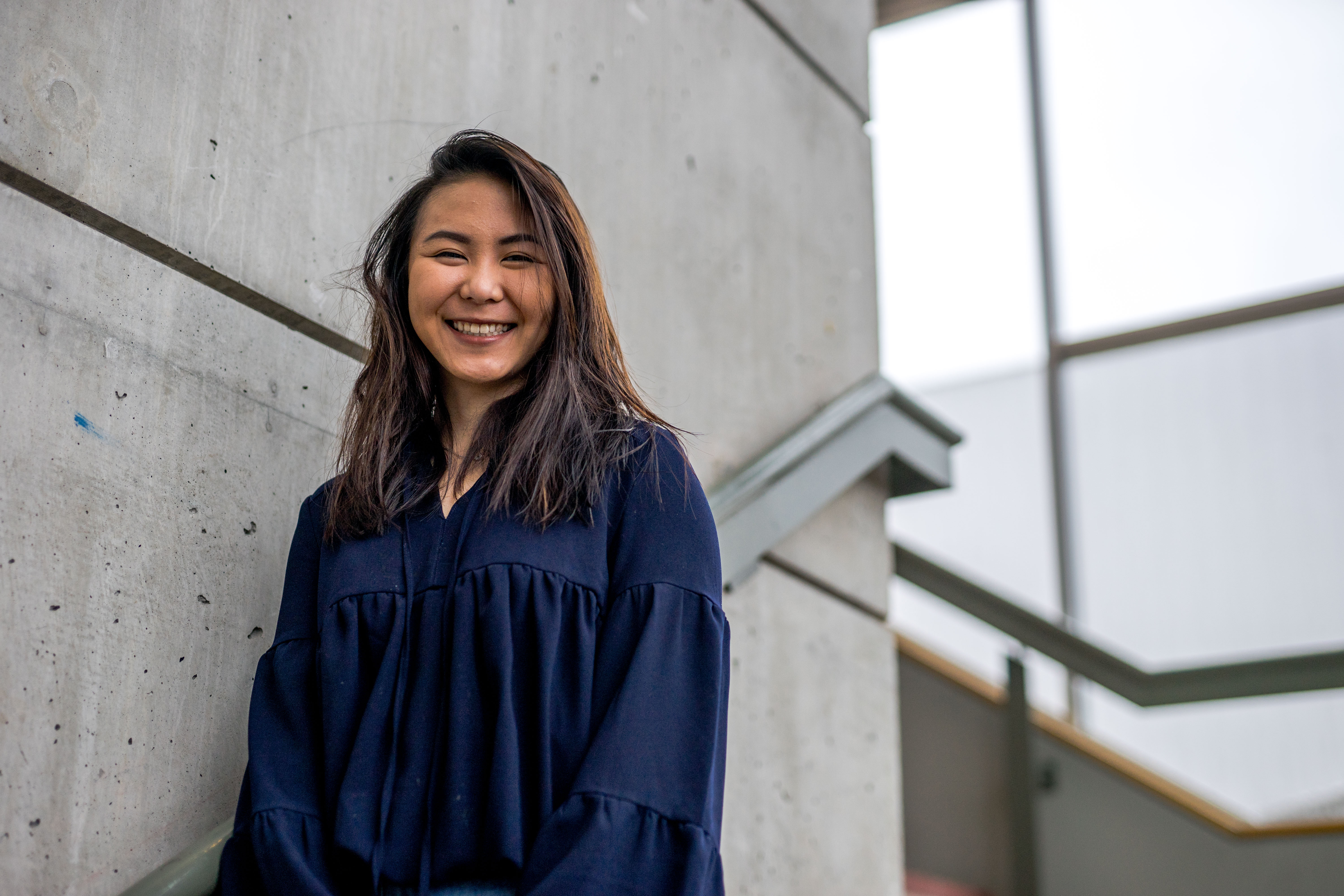
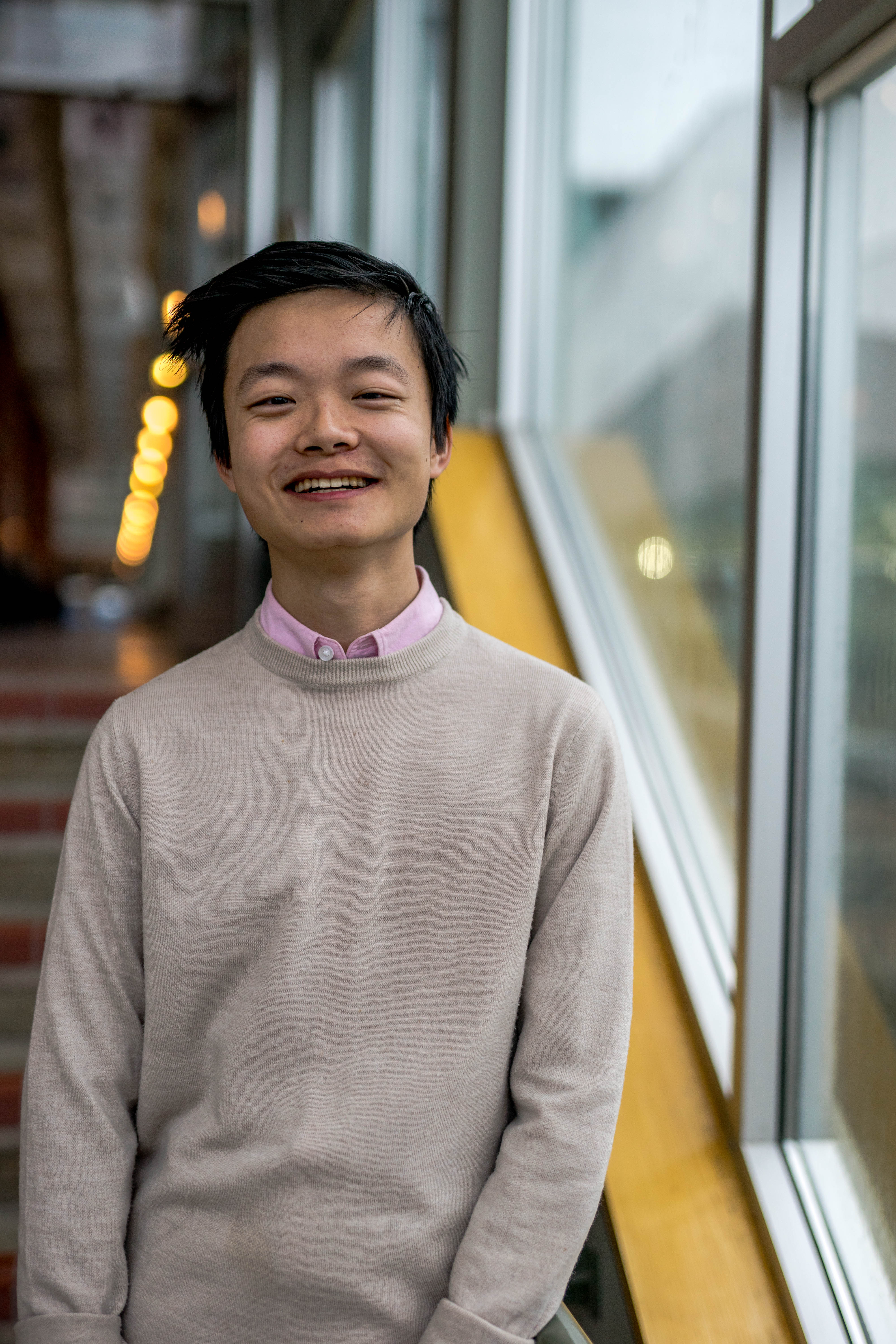
Changing tomorrow is a 3-strong team game
These three students are the winners of this year’s World’s Challenge Challenge (WCC), a competition hosted by the UBC Global Lounge, which seeks to engage students on international issues and how they can play a part in sparking social change. The Global Lounge invited teams of students to pitch solutions to global problems for a chance to win $6,000 and to go on to compete against other schools at the International World’s Challenge Challenge in June.
Allison, Rachel, and Ren chose to tackle the issue of food security in displaced populations, particularly within refugee camps. Ensuring the quality and quantity of foods in refugee camps is a major global challenge; when a lack of food literacy meets a lack of food, anemia and other micronutrient deficiencies run rampant – and almost half of these diseases affect children.
Back in February, I had talked to the team and other equally captivating WCC finalists about how students can take small but impactful strides in tackling larger global issues. I was curious why Allison, Rachel, and Ren were inspired to approach such a hefty challenge like the lack of food in refugee camps.
They had a powerful response:
“Food security ultimately affects everyone,” Rachel said, “It doesn’t matter what socio-economic background you’re from, we all need to eat.”
Allison added, “We all come from fortunate circumstances, and with this challenge, we wanted to look at communities that don’t have that privilege, and delve into what role we can play in providing these communities access to food.”
In my follow-up interview, I wanted to learn how this team found the inspiration, time, and dedication to spur social change while facing the all-too-familiar demands of student life. (I can barely find time for sleep between readings, work, and friends, let alone pitch a solution to world hunger!)
In the nook of the Nest, I sat down with this dynamic trio. Allison is a second-year LFS student and sustainability champion who was motivated to make a difference after attending a UN Climate Change Conference. Rachel is a first-year Arts student from Singapore who spent her first winter (ever) in Vancouver. And Ren is a first-year computer science student with a mild Kickstarter addiction.
Their cross-faculty collaboration played a big part in helping them develop the winning solution: multi-storey gardens. Their proposal of vertically stacked, trellis-like structures addresses the problem of food security and malnutrition in places with little space or resources. It also provides refugees with a sense of control over their food.
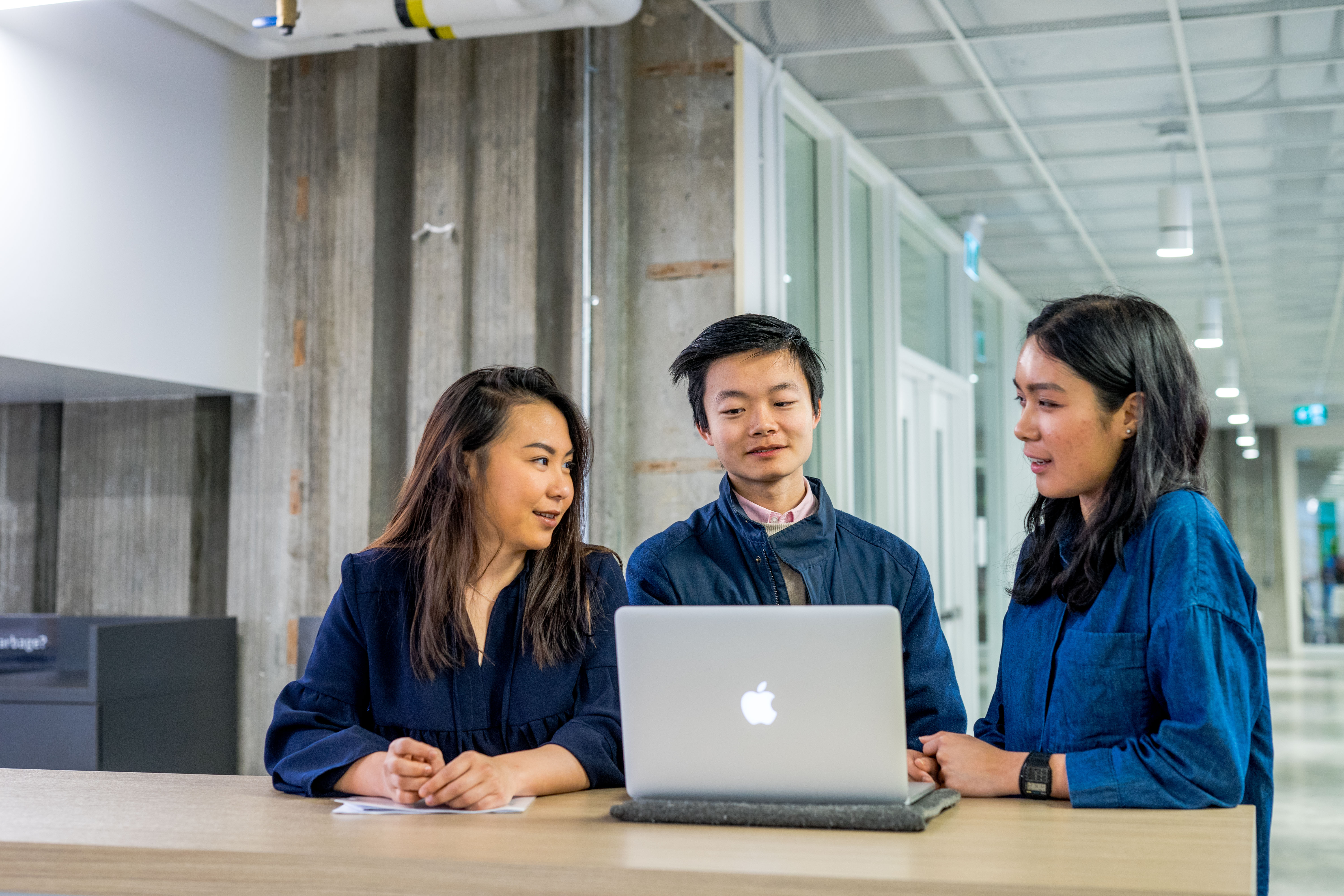
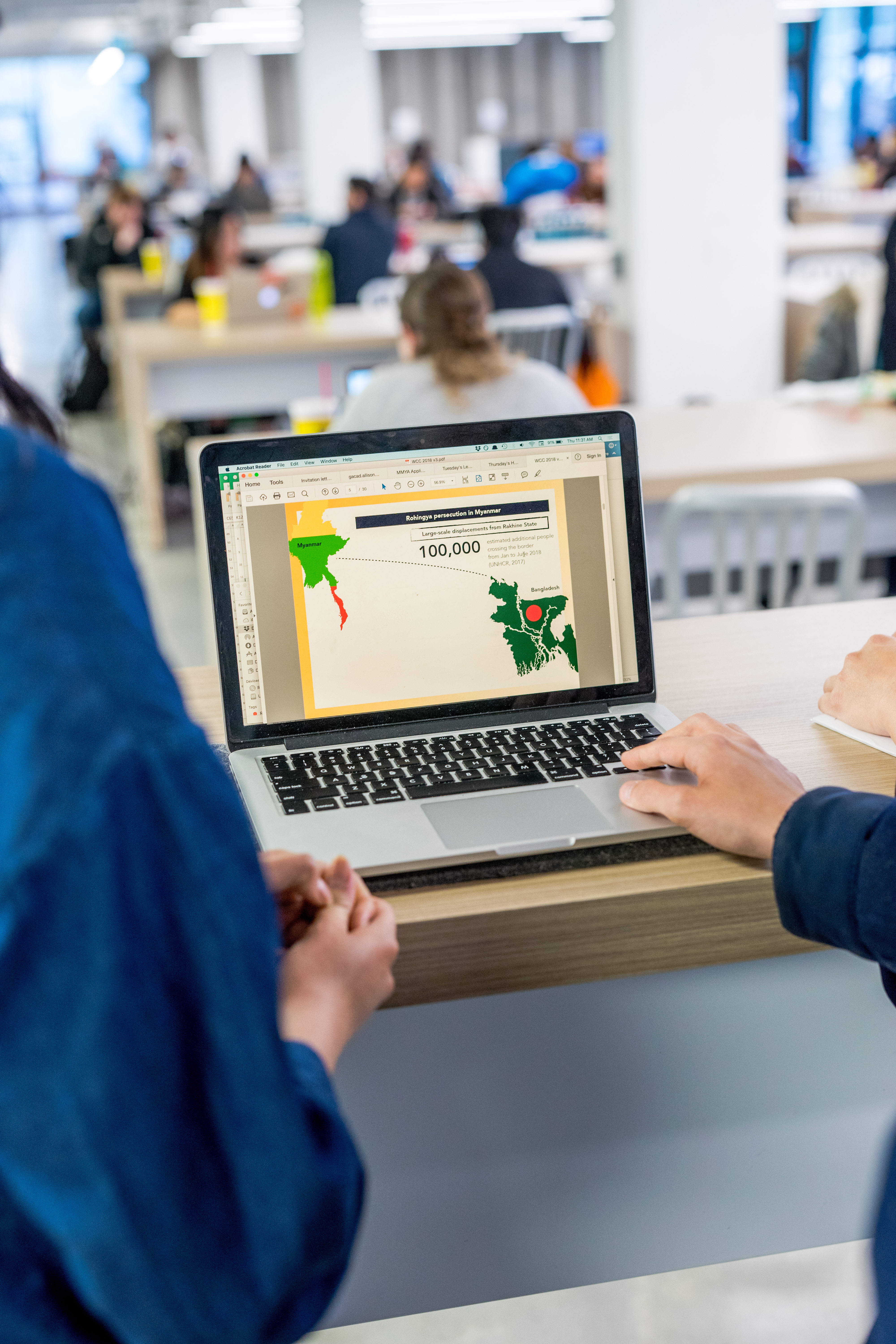
It was crucial to the team to implement a self-sustaining solution: “It isn’t just a matter of giving people food. We wanted to emphasize the sense of ownership and autonomy among these displaced communities,” said Rachel.
She, Ren, and Allison may not sound like your average first and second years, but when they’re not busy tackling global issues, they’re students like you and I—balancing priorities, choosing majors, and making the most of their time at UBC.
Taking chances and tackling apathy
“With the Challenge, we were thinking, ‘Should we do it?’ It was a really busy period in our lives, but we thought it was a good opportunity, so we just did it,” said Rachel. “But,” she added, “you have to seek out these opportunities and take risks in order for things to happen.”
Ideas live only in theory until they’re met with courage and diligence. Of course, knowing that each of us has the capacity to achieve anything if we work at it can still feel intimidating.
For instance, we all know that UBC is full of opportunities to get involved, give back, or learn something new, so much so that it can be hard to know where to start. Or how to. Sometimes, it can feel a lot easier to just be passive.
But I don’t believe apathy is inevitable.
Finding your passion or ‘purpose’ doesn’t need to be groundbreaking or result in a once-and-for-all life direction. It can be as simple as figuring out what brings you joy.
Rachel realized this when she was looking for clubs that aligned with her interests and values:
“I had to learn what I enjoy. To find balance as a uni student is to find things that make you happy.”
Allison echoed the importance of finding not only the purpose but also the passion behind what you’re doing. As a second-generation immigrant, she owes a lot of her motivation to her parents:
“I’m always baffled at how my mom came here 30 years ago barely knowing the language. She was professionally trained as a nurse in the Philippines but needed to retake exams and certifications, all while pregnant with me.”

“When you look at that resilience—mirrored in both my mom and my dad—I feel like I have a moral responsibility to not only make their lives better but to make the world better.”
Her takeaway?
“Whether it’s academic or extracurricular, once you find something you care about, go 110% at it and use the resources that UBC offers.”
Many passions start out as something that we just take a shot at—you really never know unless you try.
“It’s not like I knew what I was doing,” said Ren, “I just knew I wanted to find out.”
That sentiment alone could serve as the anthem for anyone feeling wary of the future or needing a little bit of inspiration to pursue the space outside the familiar.
Finding community in unexpected places
The team knew each other before the competition, but more as acquaintances.
Allison summed up the origin story simply: “I met Ren at a mingler thing, and I met Rachel because I was friends with her roommate. Somehow I thought it was a good idea to throw us all in a group.”
“Originally,” Rachel added, “another girl was meant to be on the team, but she got busy.”
“Wait! I was a replacement?” Ren didn’t sound too pleased.
Their team chemistry was infectious. I couldn’t help but laugh with their side quibs and inside jokes—it felt like they’d known each other for years. They seemed right at home, seated on those red coffee-stained loveseats and I could understand how their partnership turned into a friendship.
“The competition forced us to see each other more,” Allison explained, “and eventually we were like, ‘Hey do you guys want to meet and not talk about the Challenge?’”

Ren and Rachel emphasized the value of friendships, finding your community, and appreciating the rare environment that is university, especially as first years.
“There is nowhere else where you can define your community and choose the people you enjoy spending time with quite like you do in university,” Ren observed. “It really is quite rare and unique.”
Ren, who took a handful of years to work in research before coming to UBC, had an unconventional reason for his return to school:
“The reason I came back wasn’t to only further my learning, but to meet people who weren’t strictly in my network and to find a sense of community. For me, it’s not so much what you’re doing or if you’re good at it, but who you do it with and finding people you can succeed alongside [with].”
The connections you make at university can really shape who you are, and they often happen in unexpected ways. Allison, Rachel, and Ren’s serendipitous collaboration was a product of something we could all be more open to: embracing new experiences.
You are unique and so is your journey
These students are testaments of how being open to uncertainty can lead to some pretty incredible opportunities. Each took drastically different paths to get to where they are now—which proves there is no one-size-fits-all journey.
Allison, originally from Toronto, decided to leave the familiarity of home and head to the west coast to pursue a degree in global development and sustainability.
Ren didn’t go straight to university but spent some time working in research institutions focused on infectious diseases and moving around the world—from Ghana to Boston. He’s a firm believer in the philosophy of just ‘running with it’:
“There’s a lot of randomness when you’re living this kind of lifestyle. I don’t really think about how I got here or question how I got a job that has nothing to to do with my skill set or interests—you just run with it.”
And Rachel completed a degree in international business back in Singapore and spent a few years working with social enterprises before coming to UBC to learn more about social development policymaking.
She highlighted the importance of not comparing your own progress to someone else’s: “When I met someone I wanted to be or looked up to, I held onto the idea of them. It was unhealthy because it didn’t occur to me then that different people have different opportunities and different paths, and you can’t follow that exact path to get to where they are. You have to find your own.”

I had a newfound sense of calm after talking to these three. Sure, there’s still some trepidation about the future, but it’s evoking more excitement than anxiety. Allison, Rachel, and Ren have as much knowledge of what the future will bring as the rest of us (which is to say, none), but they’re choosing to be guided by curiosity and passion rather than fear.
That’s not to say that your passions have to change the world—but sometimes they can. These three used their different strengths and skills to achieve a shared passion: to help displaced communities, and, ultimately, make a difference in this world.
People say your life starts outside of your comfort zone, and although it does hold some truth, I don’t think you always need to do what scares you to feel fulfilled. Instead, stay curious and be open to change—and you might just realize that you haven’t ventured outside of your comfort zone so much as expanded it.
Challenges that once seemed too big to tackle might not feel so intimidating—and the opportunities you might’ve said no to could be the start of a new passion.
The Global Lounge is a place to discover these kinds of opportunities.
The space serves as a hub for students to engage with any global-focused topic; you can learn and teach a language through their Tandem Language Learning Program, join a network of clubs and organizations, or find funding for your own innovative ideas.
And, you can check back in on the winning trio, as they prepare to compete in the International World’s Challenge Challenge from June 3 to 8.



